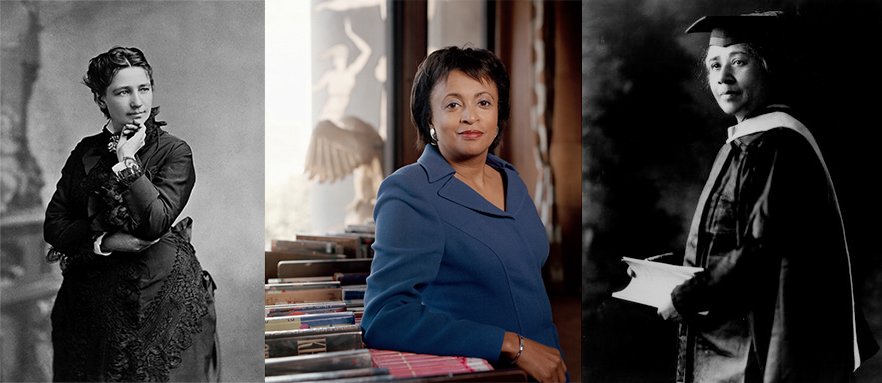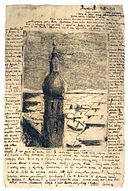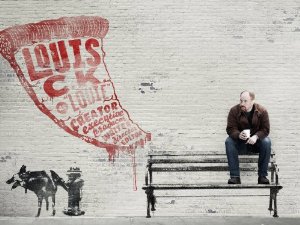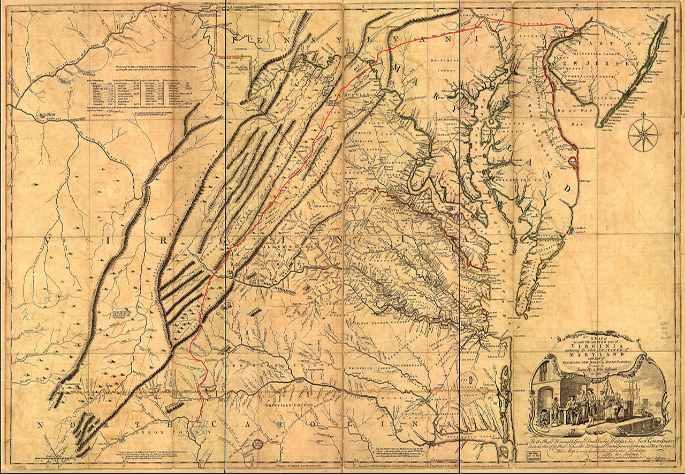Our Matriarchs of Letters

Every year, the VIDA Count reminds us just how far women have to go in order to achieve gender parity in the publishing world. This Women’s History Month, let’s reflect on twenty-six centuries of firsts from women writers. From Ancient Greece to the Baltimore Uprising, these eight women fought to be heard in societies that overwhelmingly didn’t believe that women had anything to say.
Sappho, the 7th century Greek poet, hailed from the island of Lesbos; her name and birthplace live on in the modern-day words of Sapphic and lesbian. When the Alexandrians compiled their list of the Nine Lyric Poets, Sappho was the only woman to appear on the list.
Sixteen centuries later, a woman gave us our first novel. Japanese writer Murasaki Shikibu worked between the years of 1000 and 1012 to give us The Tale of Genji. And she set a high bar: the novel sits at 1,100 pages, split between three parts and 54 chapters. But her ambition transcends breadth; written in a combination of Chinese and Japanese scripts, the novel blends histories, poetry, and prose, which come together to form a deeply psychological novel.
Four-and-a-half centuries before the word “feminism” appeared, Christine de Pizan gave the world forty-one books of poetry, prose, and biography that both highlighted women’s roles in society and criticized their depiction in literature. de Pizan’s Épître au Dieu d’Amour (1399) was, according to Simone de Beauvoir, “the first time we see a woman take up her pen in defense of her sex.”
Aphra Behn gives us another first to apsire to: the first woman to earn a living via the pen. (After serving as a spy for Charles II in Antwerp). Behn’s prolific career (short stories, novels, poetry) spanned the late 1600s, culminating with Oroonoko, the first English-language novel to give us an account of Black Africans that was remotely humanizing or sympathetic. Virginia Woolf gives Behn a shout out in A Room of One’s Own: “All women together ought to let flowers fall upon the tomb of Aphra Behn which is, most scandalously but rather appropriately, in Westminster Abbey, for it was she who earned them the right to speak their minds.”
The honor of first African American to publish a novel in the United States is a contested one. Harriet Wilson—born a free woman in New Hampshire—published Our Nig, or Sketches from the Life of a Free Black in 1859. The novel was rediscovered by Henry Louis Gates in 1982. Hannah Craft (likely a pseudonym) wrote The Bondwoman’s Narrative, making her the only fugitive slave woman to write a novel (that is known).
Nearly 150 years before Hillary, Victoria Woodhull became the first woman to run for President of the United States. In 1872, Woodhull was nominated by the Equal Rights Party and used the newspaper she’d co-founded, Woodhull & Claflin’s Weekly, to support her candidacy. The Weekly published on feminism, women’s suffrage, and free love. In 1871, the paper published the first English translation of Karl Marx’s Communist Manifesto.
Educator Anna J. Cooper’s book A Voice From The South is regarded as one of the first volumes of Black feminism. Cooper was born into slavery in North Carolina in 1858 and earned her PhD from the Sorbonne in 1924. During both high school and her undergraduate studies at Oberlin College, Cooper insisted on taking courses that were typically reserved for male students. “All I claim is that there is a feminine as well as a masculine side to truth; that these are related not as inferior and superior, not as better and worse, not as weaker and stronger, but as complements—complements in one necessary and symmetric whole,” Cooper writes in A Voice From the South (full text available online).
Last month, Baltimore librarian Carla Hayden became the first woman and first African American to be appointed as Librarian of Congress (just in time to close out Black History Month and launch Women’s History Month). Hayden currently serves as the CEO of Baltimore’s Enoch Pratt Free Library system. After last April’s uprising following the police killing of Freddie Gray, Hayden was lauded for keeping library branches open throughout the unrest. Once Hayden is confirmed, her librarianship will end 216 years of male leadership. This job will give Hayden another first: first woman to appoint the U.S. Poet Laureate, as the Librarian of Congress is tasked with this honor.
As Women’s History Month draws to a close, I’m challenging myself—and all of you—to spend the remaining eight months of 2016 reading the works of these women. We can start our April Sappho reading here.


